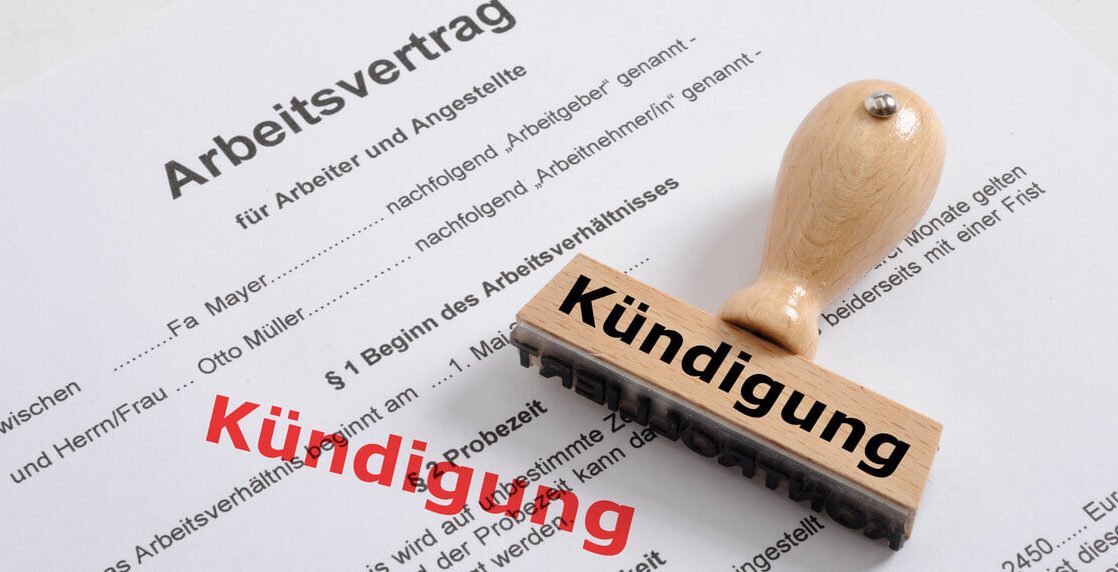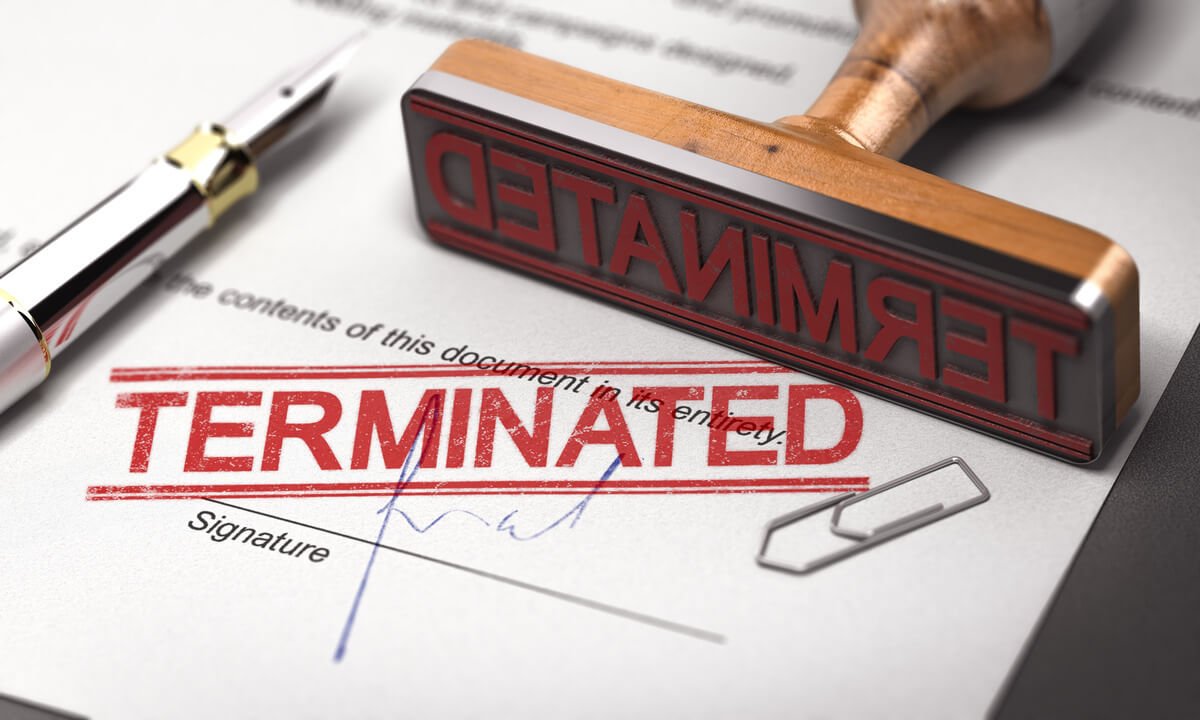

Quelle: zuwanderung.sachsen.de
The Blue Card is a residence permit for highly skilled non-EU professionals. However, it is also linked to your employment contract. So you need to inform the immigration office if you lose your job. Also, you will need a new job to keep your residence permit. However, authorities must grant you a period of three months to look for a new job (up to six months if you have held your Blue Card for >2 years. This blog explains what you should do when you – as a Blue Card holder – lose your job in Germany.
Content
Free initial consultation with a lawyer
Quick callback after 1 to 2 hours for a free initial consultation with a lawyer
About the Blue Card
The EU Blue Card is a residence permit for highly skilled non-EU professionals seeking employment, e.g., in Germany. Benefits include your right to stay and work in the issuing country (e.g. Germany), your right to travel, leave and re-enter Germany, and travel within the Schengen Area without a visa, and many more.
General Rules for Blue Cards
The Blue Card residence permit is generally available to university graduates or individuals with equivalent qualifications who meet specific criteria:
- You possess either a German degree or a foreign one recognized equivalent to a German qualification. If you do not have a traditional university degree, you must present a tertiary-level qualification, typically requiring at least three years of education, to qualify for the Blue Card.
- You have a job offer from an employer in Germany, with the following conditions:
- The employment must last at least six months.
- The position must align with your academic or professional qualifications. If the profession is regulated, you need to have the necessary licensing or proof of imminent licensing when applying for the visa.
- The position should offer an annual gross salary of at least €45,300.

Free initial consultation with a specialist lawyer
- Free initial consultation with a lawyer
- Quick callback after 1 to 2 hours
- Strategy for negotiating the severance pay
Special Rules for “shortage occupations”
There are specific provisions for roles in shortage occupations. In such cases, you may still qualify for the EU Blue Card with a reduced salary threshold of €41,041.80 (as of 2024), provided the Federal Employment Agency (BA) grants approval. The minimum salary thresholds are updated annually by the Federal Ministry of the Interior and Community. The following fields are considered shortage occupations in Germany:
- Managers in manufacturing, mining, construction, and distribution
- Managers in information and communications technology services
- Managers in professional services, such as childcare, healthcare, and education
- Academic STEM professionals (Science, Technology, Engineering, Mathematics)
- Academic professionals in architecture, urban, and transport planning
- Physicians, Veterinarians, Dentists, Pharmacists, and some other, similar professions
Special Rules for IT professionals
Special rules apply to IT professionals. If you are an IT expert or manager without formal academic qualifications, you may still qualify for the EU Blue Card if:
- You can provide proof of a specific job offer as an IT professional in Germany, with employment lasting at least six months.
- The position must offer a gross annual salary of at least €41,041.80 (as of 2024).
- You have at least three years of work experience in IT within the past seven years. Your professional experience must be at a university-equivalent level and essential for the job in Germany.
How easy can you lose your job in Germany?
Before we come to the question of what happens to your Blue Card if you lose your job, let’s first look at the question on how you can actually lose your job in Germany. Because in general, that’s a pretty high bar (for your employer). Once you have completed your six-month probation period, you are no longer subject to arbitrary dismissal. If your employer has more than 10 employees, you are protected by the German Employment Protection Act (KSchG), which requires valid grounds for any termination to be deemed “fair.” There are only three categories of “fair” dismissals:
- Personal reasons: This refers to factors specific to the employee, such as prolonged illness, insufficient qualifications, or the loss of a necessary license (e.g., a driver’s license). Rare!
- Misconduct: This occurs when an employee breaches their obligations. Examples include persistent refusal to perform tasks, theft, bullying, or repeated unexcused absences. Very rare!
- Operational reasons: Now, this is the biggest and most relevant group. “Operational reasons” are tied to economic or organizational shifts within the company, such as restructuring, or downsizing. However,very strict requirements apply, which are often not met by the employer.
Read more about these categories in our dedicated blog post on the three categories for a legal and “fair” dismissal in Germany.
What are the consequences for your Blue Card if you lose your job?
If you are living in Germany on a Blue Card residence permit, your residence permit is linked to your employment contract. So you need to inform immigration office about your termination. Authorities must grant you a period of three months to look for a new job (up to six months if you have held your Blue Card for more than two years). Deadline extensions are possible and often granted, if well-founded. Details matter a lot here, so this should be discussed with a legal expert. The partner lawyers at AbfindungsHero can help you with this.
Free initial consultation with a lawyer
Quick callback after 1 to 2 hours for a free initial consultation with a lawyer
What should be your next steps in case you lose your job as a Blue Card holder?
If you hold a Blue Card and lose your job, you must notify the Ausländerbehörde (immigration office) about your termination; you should also register as a job seeker to avoid any disadvantages for unemployment benefits. And you should assess your chances for a severance package. All of this should be done within days – there are binding, hard legal deadlines which can significantly impair your legal positions.
Notification of the Ausländerbehörde
Here’s how to proceed:
- Choose the right department inside Ausländerbehörde
- Write them a letter in German. It should include your full name, ID, date and place of birth, nationality
- The type of residence permit you have
- When your employment ends
- Include a copy of your termination notice or resignation letter
- Send by certified mail (Einschreiben) or, when in Berlin, use the official contact form (and document your submission)
Once you have informed the Ausländerbehörde, your residence permit remains valid, and no immediate action is typically taken by the Ausländerbehörde. Unlike you, they are less limited by legal deadlines. Once they react, the Ausländerbehörde will grant you a period of three (or more) months — if prolonged, you should be able to get at least around six months — to secure new employment.
Registration as a job seeker
Also, register as a job seeker with the Agentur für Arbeit. If you have contributed to unemployment insurance for the qualifying period (usually six months), you are entitled to unemployment benefits while you look for a new job. Exceptions may apply in cases of extraordinary dismissals.
Registration as a “job-seeker” with the Agentur für Arbeit should happen no later than three days after receiving a termination notice. If you report late (or not at all), you might risk your unemployment benefits. And even in case you have a new job already, informing the Agentur für Arbeit is the prudent (although sometimes painful) thing to do.
In Berlin, this process can be started here.
Assess your chances for a severance package
Assess your chances for a severance package and consider legal action against unfair dismissal. This should best done with a specialized lawyer, but more important, must be done fast. There is a binding, three-week deadline for legal action, after which it is “game over” for your severance pay. This period starts on the date of receipt of the notice of termination.
A labor lawyer can help you negotiate a better deal in general (incl. severance pay). Especially for those holding an EU Blue Card who face termination with a short notice period, it is highly advisable to seek legal counsel immediately. In such cases, the goal might be to extend the time available to find new employment, while negotiating a higher severance pay. In negotiations, these 2 objectives can, but don’t have to be, in conflict. However, when they do, legal advice can be crucial to navigating the conflicting goals effectively.

Calculate severance pay now free of charge
- Calculate potential severance payment amount
- Strategy for negotiating a fair severance payment
- Find suitable lawyers for labour law






